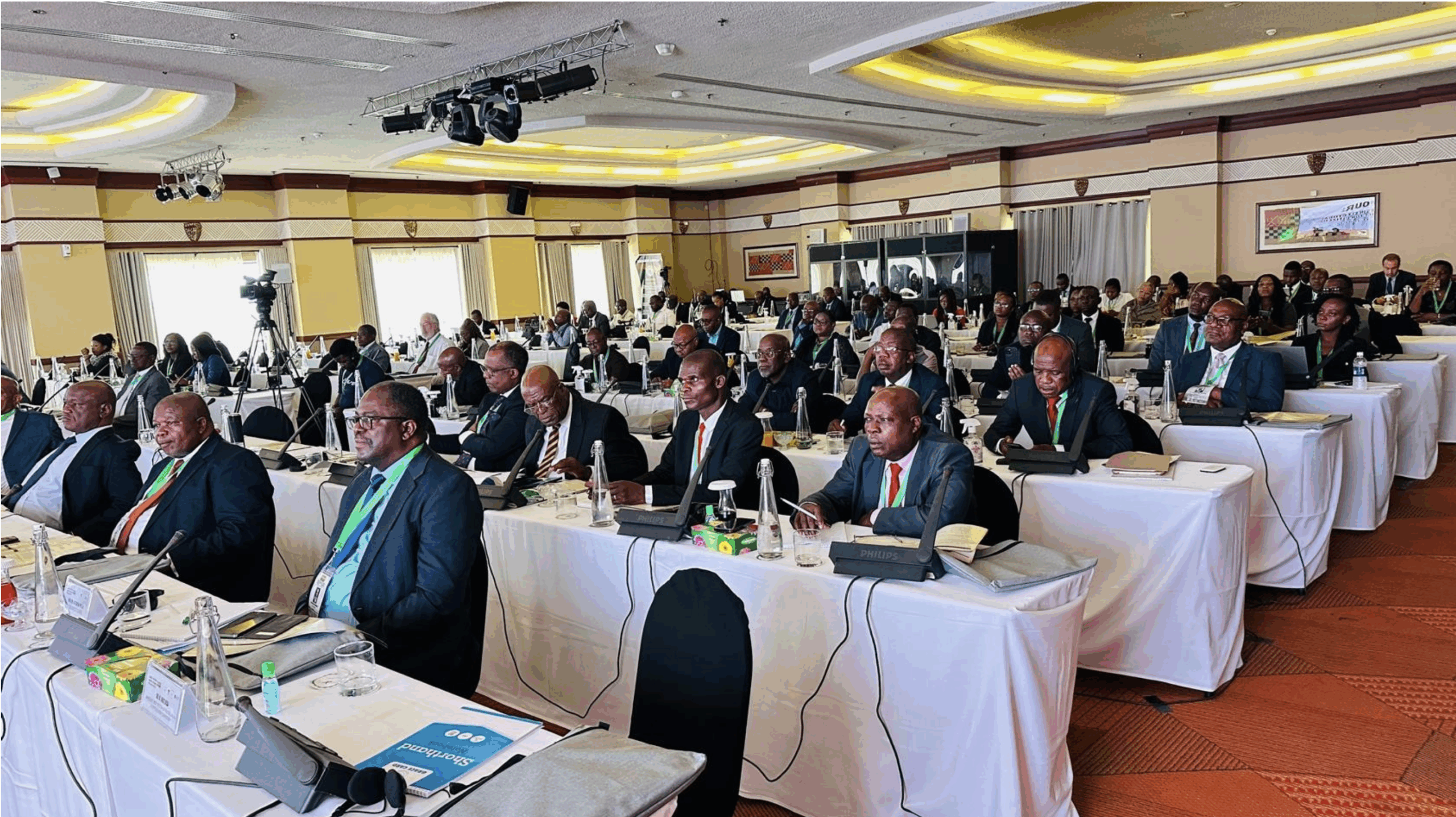We are happy to share the Africa Electoral Justice Network report in respect of the Annual conference held in Zimbabwe in 2024. The theme of the Annual Conference was Turning the Hope of the African Charter on Democracy, Elections and Governance to Action – The Role of the Judiciary in Upholding the Rule of Law and Ensuring Free, Fair, and Credible Elections in Africa.
The conference which was organised for the AEJN by the AJJF, in collaboration with the Judicial Service Commission of Zimbabwe, the Southern and East Africa Chief Justices Forum and the South Africa Judicial Education Institute was held in a context where post-colonial Africa has undergone an evident democratic transformation, marked by democratic elections as a method of choosing leaders and peaceful transfers of power afterward. Despite huge progress in Africa’s democratic journey, concerns have been raised about the quality of elections, including legitimate criticism that some have been heavily flawed and produced highly contested outcomes that have thrown countries into instability and stagnation in development.
The African Union (AU)’s adoption of the African Charter on Democracy, Elections and Governance (“the Democracy Charter”) in 2007 raised the hopes of key elections stakeholders and democracy activists, who believed this binding document would strengthen good governance, democracy and the rule of law on the continent. The Democracy Charter heightened commitment towards cementing the fundamental pillars of democracy in Africa, which are, in practice, complemented by electoral justice systems. Since then, the African Union has made a significant policy shift from the principle of non-interference to non-indifference in violations of human and people’s rights, including during elections.
The AU has also taken routine measures, like suspension of AU membership, against countries where there have been unconstitutional changes of government. In this regard, adopting the Democracy Charter was an additional layer of an improved legal and policy framework by the AU to strengthen democratization in Africa.
This report summarises what electoral adjudicators in Africa under the auspices of the AEJN platform feel is the value addition to electoral dispute resolution introduced by the adoption of the African Democracy Charter.
The AJJF is acutely aware that the one area of law practice that gives judicial officers a headache is in electoral dispute resolution. This is not because election disputes are difficult to resolve. Like in all other disputes, judges in electoral disputes are expected to establish the facts and apply the law without fear or favour, independently and impartially to come to judicial decisions that build the electoral jurisprudence. Through this process, the courts are able to contribute as final arbiters of electoral disputes, to electoral justice in Africa.
At the AJJF we believe that the centrality of the vote is the most important consideration in resolving all electoral disputes. At the end of the day, those who emerge after electoral dispute resolution should leave everyone in no doubt that those who ascend to public office after elections are a true reflection of the will of the electorate as expressed in a free, fair and credible elections.
At the AJJF we have no illusions on how challenging electoral dispute resolution is for the judiciary. Elections are threat multipliers to judicial independence. Elections often raise stacks due to power contestations. The environment usually gets charged raising tensions, suspicion, toxicity, and polarization in society.
The judicial court is subjected to severe and often unfair scrutiny in the court of public opinion. Politicians who lose elections often find it easier to attribute losses to “biased” courts and sometimes electoral challenges become a politician’s method of managing the fall out arising from losing elections. This phenomenon is often referred to as judicialisation of politics. It ultimately results in politicization of the judiciary. When a judiciary is needlessly politicized, it loses some of its social currency, which is public confidence that the judicial process is beyond reproach. Loss of confidence in the integrity of the judiciary, its independence and impartiality is a peculiar threat to the rule of law in any society.
Aware of these complexities, we made a conscious and intentional decision to create and support with resources and technical expertise, a platform of electoral justice practitioners who work in the difficult area of electoral dispute resolution. Through this platform, the Africa Electoral Justice Network (AEJN), we wanted judges from all jurisdictions in Africa irrespective of their context and whether members of the AJJf or not, to have a safe space where they could share experiences openly, mentor each other and appreciate best practices from each other without facing pressure from authorities in their jurisdictions. This is why the AEJN platform is not a formally registered organisation but a space of onboarding and off boarding based on the evolving needs of the electoral adjudicator at particular time, space and context. The AJJF and SAJEI provide Secretarial services and support to this platform and organise its events and we need your support to maintain this platform active..
The AJJF through the Secretary General Mr Martin Masiga organised the inaugural meeting of the electoral justice network in May 2019 in South Africa in collaboration with the South Africa Judicial Education Institute (SAJEI), the International Commission of Jurists (ICJ) and the International Federation on Electoral Systems (IFES). We have helped organise the platform’s annual meetings with the 2 recent successful ones held in Lilongwe, Malawi in 2022 co-hosted by the judiciary of Malawi and in Victoria Falls, Zimbabwe 2024 co-hosted with the Judiciary of Zimbabwe and in respect for which this report is issued.
For more information on the AEJN please contact our Secretary General Mr. Martin Masiga on okumu-masiga@africajurists.org or our Elections and Rule of Law expert Arnold Tsunga who coordinates the AEJN Secretarial services on tsunga@africajurists.org or Mampotse of SAJEI on MMokgetle@judiciary.org.za or Justice Mbha who currently chairs the AEJN platform

